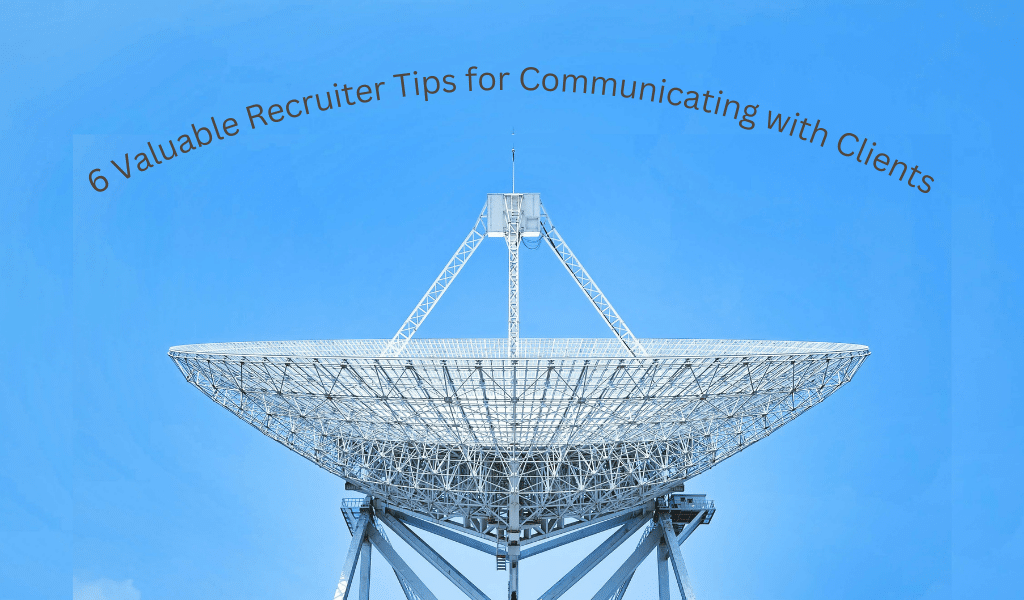Don’t miss these recruiter tips for turning your communication into a business goldmine.
Communication is the secret to success in almost any industry. For some careers, however, communication is essential. And for recruiters, good communication can be the difference between a thriving business and watching your competitors take all your clients. That’s why it’s always good to review (or discover some new!) recruiter tips for communicating.
In some ways, communication is the most important aspect of your work. You talk to clients to find out what skills, experience, background, and personality they seek in their next hires. You talk to them to learn about the timeline for hiring, what benefits they offer, the pay range, office location, and so on.
As a recruiter, you are the conduit between the employer and potential employee. It’s your job to engage with the right people and keep them informed every step of the way.
Call Logic’s auto-dialer and call management software offers dozens of helpful tools to increase your success and simplify your daily tasks. Call for your free consultation today to learn more!
6 Recruiter tips for communication that you can put into practice right now
There are three general points we can divide these recruiter tips into: before, during, and after the hiring process. Before the hiring process, a significant portion of your communication will consist of gathering information and sharing information about your process.
During the hiring process, you’ll communicate with your clients to update them regarding potential hires and discuss logistics, such as interview schedules. Then, you’ll get in touch afterward to inquire about the process and get any feedback they may have. We’ll go through these tips in that order, with the understanding that there may be times you have to backtrack and revisit certain stages of the process. After all, communication itself is rarely linear – there’s always some back and forth in the process.
1. Do your homework. One of the most valuable recruiter tips we can offer you for communicating with clients is to do your homework before you get on the phone for your first meeting. Learn as much as you can about average salaries and benefits in their industry. Find out what you can about their competition and any positions they’ve had trouble or success filling in the past. Look at other job openings with similar companies. While the hiring manager may know about their own company and positions, your job is to understand the labor market and guide your clients so they can bring in the best possible candidates.
2. Ask questions. Think about some of the things your prospects will ask you about the job, and get that information from your client. Is this a new position? Did someone leave, get promoted, or get fired? What’s the business culture like? Is it supportive? Competitive? How soon do they want to fill the role? Is it permanent or temporary? What are the expectations for someone coming into this role? You may end up asking a lot of questions, but the more you know about the company and the position, the more you can help your client save time and find the right person to fill the role.
3. Clarify responsibilities. Even when things are in writing, it’s a good idea to clarify your responsibilities when you communicate with your clients. Some of your clients may just want you to find some good candidates and send them along, while others may want you involved all the way up to the actual hiring process. You can avoid confusion by including the details in your initial conversation.
You can use these recruiter tips for communication prior to the hiring process to help build your relationship, but don’t be afraid to go back and ask questions or clarify responsibilities once things get moving.
4. Make a plan. Hiring managers are busy people. The fact that their department is hiring means there’s a good chance they are already inundated with work and overwhelmed. Therefore, it’s helpful to make a communication plan for keeping in touch during the recruiting and hiring process. How often you communicate will depend, in part, on how quickly they want to hire. Additionally, your candidates expect replies within a reasonable time, especially those candidates who are actively job hunting. At a minimum, though, consider giving the hiring manager at least a weekly update, even if it’s a short email.
5. Confirm appointments. As the medium between job candidates and the hiring manager, be sure to confirm interview appointments. This helps ensure a smooth process and makes the most of the time that both the hiring manager and candidates are putting in.
Once a candidate is hired, you still have work to do. Hopefully, you’ll continue to work with the hiring company, so it’s vital to keep your relationship up.
6. Follow up. There’s always room for improvement. Once the hiring process is complete, take some time to follow up with the company and the hiring manager to find out what worked well for them. Similarly, ask if there were parts of the process that could be improved. Make it easy for them by asking about specific areas, such as the timing of interviews and hiring, the quality of candidates, or communications.
Remember, as a recruiter, you provide a valuable and appreciated service for companies and for job seekers. A few small improvements around communications could be the tweak that moves you from a trusted partner to an indispensable part of the team.
Make more calls in less time with Call Logic. From donor profile management to automated voicemails to built-in compliance, we’ve got you covered in every aspect of your business. Call for your free consultation today to learn more!

